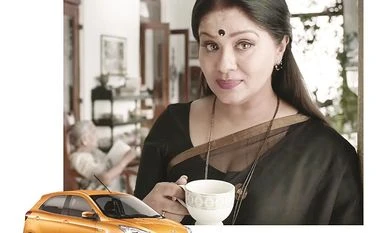A string of on-screen baddies feature in the latest ad campaign for automaker Ford India. All of them seem to be doing something villainous — spiking a drink, carrying contraband and killing a person. But looks can be deceptive and Ford plays up this aspect well in its ads on service costs involving its brands. What appears expensive may not actually be so is what the automaker is looking to convey in its latest piece of communication.
In the process, Ford, best known for four-wheelers such as the Figo, Aspire and Ecosport, is bringing the attention back on a key promise — after-sales service. In a day and age when technology has become the route-to-market for most advertisers, especially those in categories such as durables, electronics, mobile handsets, auto and telecom, focus on after-sales service had taken a bit of a back-seat for companies operating in this space.
The last few years, in particular, saw the cacophony of sounds promoting technology only growing as convergence in categories such as telecom and handsets increased. The reasons for this are not difficult to gauge: India is among the fastest-growing smartphone as well as mobile subscription markets in the world.
At over one billion in terms of users, India is second only to China when it comes to its mobile subscriber base. While the pace of growth in smartphones slackened due to demonetisation in the December 2016 quarter, the overall market size was pegged at 118 million units in terms of shipments for the full year 2016, according to Counterpoint Research. This is higher than the 103 million units shipped in 2015 by handset majors.
In auto too, the prospects are bright with India’s rank as the world’s sixth-largest automotive market, according to a recent World Bank report. Emphasis on production and superior technology, the report says, has played its part in growing the market with automakers constantly pushing the pedal on this front.
In this converged and technologically-savvy world therefore, say brand experts, differentiating one product from the other becomes difficult as most brands speak the same language. Service then can become the unique selling proposition or hook for a brand to help it stand out of the clutter, experts say. A few marketers are beginning to understand this now.
Take one more example. Korean chaebol Samsung, which spent the second half of 2016 grappling with a bruising product glitch that threatened to damage its reputation and brand equity, chose to put all of this behind it with a touching commercial on after-sales service.
The ad, released recently, shows a Samsung engineer making a perilous journey to fix a faulty TV set in a remote location. Once there he realises the residents of the hostel are blind and depend completely on the sound coming from the TV to entertain themselves. In this case, the young folks congregate in front of the TV to ‘hear’ one of the hostel resident sing in a contest, once the idiot box is fixed. The engineer watches in disbelief, realising that his journey wasn’t a waste at all. While the call of duty compelled him to make the tough journey, it was worth it.
In a conversation with Business Standard earlier, Samsung India’s head of service Anurag Parashar said building a network of service centres across the country was critical as the firm aimed to reduce response time to consumer complaints. “While adding service points is something we’ve undertaken in the past, what we are now doing is revolutionising the service model and delivery. We will increase service points by 50 per cent, taking the total number to 3,000 in the country; add mobile service vans to cover remote areas and beef up our strength of engineers,” he said.
Rahul Gautam, vice-president, marketing, Ford India, meanwhile, says, the company will continue to introduce ‘facts of life’ to drive home the point of affordability in servicing costs involving its brands. “Indians are one of the most discerning customers. After a house and wedding, a car purchase ranks among the top three most value-driven purchases for an Indian buyer,” he says.
Treading the beaten path
To be sure, there have been brands in the past that have used the language of service to stand of the clutter. These have includes names such as LG in consumer durables and Maruti Suzuki in auto. Two decades ago, in fact, LG became a household name in India riding on the promise of after-sales service.
When most brands only dwelt on superior product features, it was LG, under its then India head K R Kim, that went beyond sales into after-sales, making it a key proposition for the company. That model was subsequently adopted by most players in the business.
In auto, it was brands such as Maruti Suzuki that dwelt on the service promise by focusing on the extensive reach of its service centres. Ads such as ‘No matter where you go, you’ll find a Maruti service station’ is one example of this. First created in the 1990s, the concept was adapted in subsequent marketing campaigns by the automaker. Service is the new brand currency.
Unlock 30+ premium stories daily hand-picked by our editors, across devices on browser and app.
Pick your 5 favourite companies, get a daily email with all news updates on them.
Full access to our intuitive epaper - clip, save, share articles from any device; newspaper archives from 2006.
Preferential invites to Business Standard events.
Curated newsletters on markets, personal finance, policy & politics, start-ups, technology, and more.
)